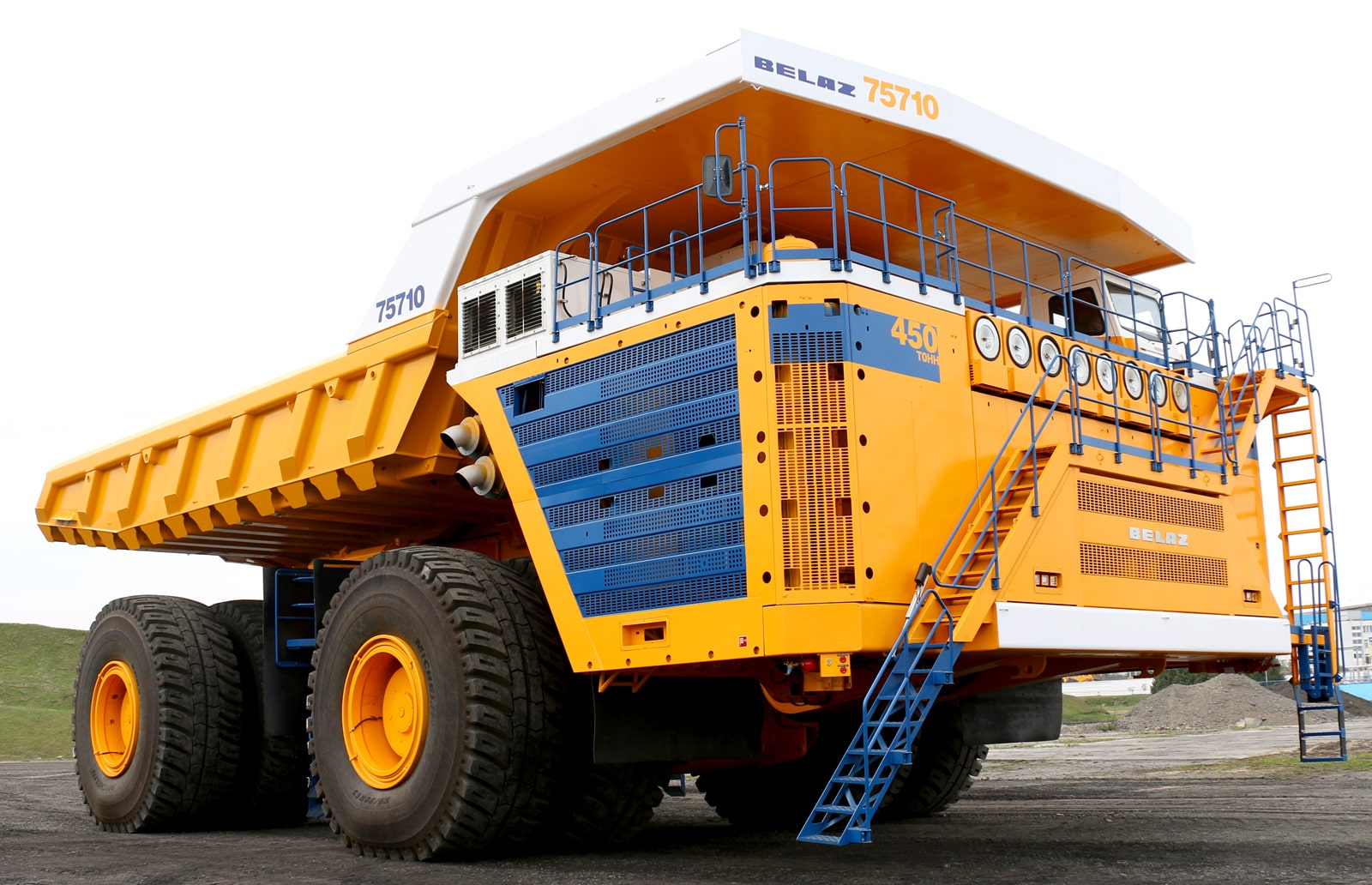 The European Union (EU) and U.S. sanctions against Belarus President Alexander Lukashenko’s regime have barred the way for BelAZ to foreign markets and pushed key components suppliers to end cooperation with the company. Several companies have terminated cooperation with BelAZ, including Cummins and Rolls Royce Group — both are known to be the main engine supplier for BelAZ. In addition, all supplies to BelAZ have been ceased by Liebherr, Geramatic OY, Danfoss Group and Yokohama.
The European Union (EU) and U.S. sanctions against Belarus President Alexander Lukashenko’s regime have barred the way for BelAZ to foreign markets and pushed key components suppliers to end cooperation with the company. Several companies have terminated cooperation with BelAZ, including Cummins and Rolls Royce Group — both are known to be the main engine supplier for BelAZ. In addition, all supplies to BelAZ have been ceased by Liebherr, Geramatic OY, Danfoss Group and Yokohama.
BelAZ was subjected to the fourth package of European sanctions on June 21, among eight state-owned Belarusian companies “over enduring repression and the forced landing of a Ryanair flight” committed by Belarusian authorities.
The Belarusian machine-building enterprises subjected to Western sanctions, MAZ, BelAZ, and Amkodor, experienced problems selling equipment in European and American markets, and faced a shortage of some key components, Belarus first deputy Industry Minister Sergei Gunko said on September 8.
“BelAZ engines are the most pressing issue for us today, but even there, we already have approaches and solutions on how not to lose this niche and reputation,” Gunko said. “Suppliers from China and Russia are being considered as sources to replace some components.”
Some customers also refrained from working with Belaz. In July, Metinvest, a Ukrainian steel producer with coal and iron ore mining operations, announced it had sent a request to the European Commission to clarify the possibility of legally purchasing equipment from BelAZ.
A week later, ArcelorMittal’s Kryvyi Rig mining and metallurgical plant announced it suspended all purchases at BelAZ and submitted this issue to its legal department for further analysis.
BelAZ is unlikely to find replacements for the Western engines and components. “Such engines are only produced in the developed countries — the USA, Japan, and Western Europe. In theory, they [BelAZ management] could organize deliveries through a chain of intermediaries, but this is likely to make supplies more expensive and increase delivery times. Engine supplies for BelAZ can hardly be hidden, so the production problems will be severe,” said Vadim Iosub, a financial analyst with the Russian consulting firm Alpari Eurasia.
Under the sanctions regime, all companies working with BelAZ could be subjected to the so-called secondary sanctions. This fact may discourage Chinese and even Russian companies from working with BelAZ.
“Nobody wants to get involved with the sanctions,” said Lev Lvovsky, senior researcher at the Russian analytical agency Vegas. “The Chinese are not rushing to supply their engines since China is one of the largest economies in the world, and the United States is an important partner for them.
“There is still Russia, but large companies also do not want to be associated with the sanctions. The profitability of BelAZ was not great, so it is a big question how they will survive. The government will likely try and provide some aid.”
The lack of components has become so tough that in August, BelAZ workers had to disassemble two 450-ton dump trucks to urgently execute an order for four smaller dump trucks, Belarus independent news outlet Charter97 said. BelAZ equips each of its 450-ton dump trucks with two engines. The same engines are used in smaller models, the news outlet explained.
Aside from the components shortage, due to the sanctions, BelAZ has to deal with logistics issues.
On September 7, the Lithuanian authorities did not allow the cargo of BelAZ to be transported through the seaport of Klaipeda. BelAZ tried to export to Chile 18 containers with parts of trucks. The rationale behind this decision is that dump trucks are widely used in the mining industry, but they can also be adapted for other purposes, which means they fall under definitions of products with dual-use functions, including military needs, the Lithuanian authorities explained.









